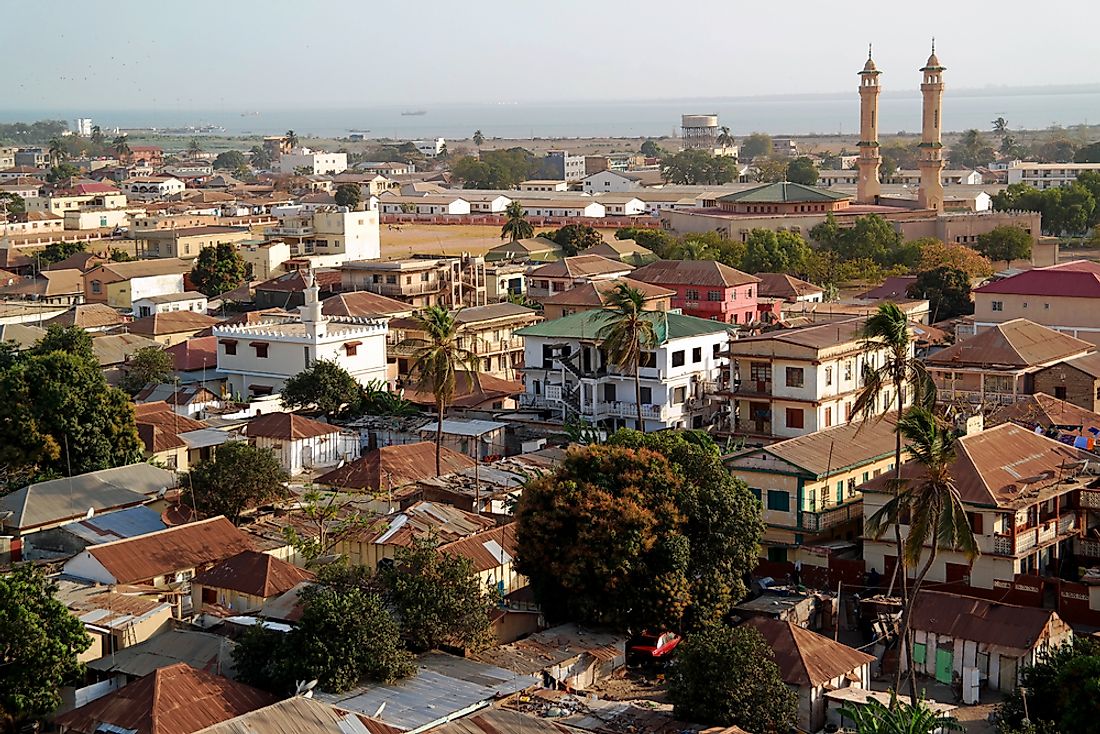The Culture Of The Gambia

The Gambia is a West African country with a coastline on the Atlantic Ocean. It is the smallest nation in mainland Africa. Despite its size, the Gambia has a diverse culture that is an amalgamation of the cultures of the many ethnic groups residing in the country.
Ethnicity, Language, And Religion
The Gambia is home to a population of around 2,092,731 individuals. Mandinka peoples account for 34% of the country’s population. Other ethnic groups with significant populations residing in the country are Fulani, Wolof, Jola, Serahuleh, Serer, Bambara, Creole, and others. English is the official language of the Gambia and is used for most formal communications. The ethnic groups in the country speak their distinct indigenous languages. Over 95% of the population are Muslims. Only 4.2% of the population adheres to Christianity. A large section of the Muslims and Christians of the country also continue to follow their indigenous religious practices.
Cuisine
Gambian cuisine uses rice and cassava as the staples of the diet. Fish is consumed heavily. Cabbage, black-eyed peas, tomato, and peanuts are extensively used. Salt, pepper, onion, lemon, herbs, and chili are used as seasonings in Gambian dishes. Benachin is a traditional dish that is cooked in one pot using a variety of ingredients like fish or meat, aubergine, onion, tomato, carrot, cabbage, pumpkin, tomato paste, lemon juice, etc. A lemon flavored steamed fish dish called caldo is also consumed widely. Pepeh soup (a spicy fish stew or foot stew), fish balls, jollof rice (rice, onion, red pepper, tomato, and seasonings), Maafe (a peanut stew), etc., are some other dishes eaten by the Gambians.
Literature And The Arts
Like every other African country, Gambia has a rich and long tradition of oral literature. Storytelling is an important part of the country’s culture. Folk tales, poetry, ritualistic chants, etc., add to the vast collection of literature that has been passed through generations of the Gambians by word of mouth alone. Written literature has a more recent history in the country and began with the spread of formal education during European colonial rule.
Gambian artists and craftsmen also excel in a number of indigenous arts and crafts like mask-making, pottery, wood carving, basketry, etc. Many of these products are utilized for domestic purposes or used for performing indigenous ceremonies and rituals.
Performance Arts
The music of the Gambia and that of its neighbor Senegal are quite related. Mbalax is popular dance music in the country. It is a fusion of a traditional drumming and dance music style called sabar with Western pop music and dance. Hereditary praise-singers called Griots are found throughout the country. Gambian popular music emerged more recently in the 1960s.
Sports
Wrestling is the most popular sport in the Gambia. It is also regarded as the national sport of the country. Basketball and association football are also popular. The Gambia Football Federation manages the football games and teams in the country and runs the league football tournaments. The national football team of the nation is yet to make a market in the international scene. The Independence Stadium is the home ground of this team.
Life In Gambian Society
Gambian society is a male-dominated one. Women are usually confined to household and childcare duties. In rural areas, women participate in agricultural work. Men usually rule the family and take the final decision on important family matters, especially financial ones. While the law allows women to work, very few women participate in the country’s workforce and hold the top positions in work and business. Marriages are usually arranged and polygamous marriages are common. However, the financial status of a man determines his ability to keep multiple wives. The patterns of marriage, residence, and kinship, however, varies with the ethnicity of the Gambian population. Shari'a law dictates marriage, inheritance, and divorce. Children are highly valued and women who are unable to bear children are often discarded by their husbands. Women also face great discrimination in other aspects of life. Children of poor households are often forced to give up education to help their parents in maintaining the family. High levels of poverty and low levels of literacy are prevalent in The Gambia.
Gambians are generally soft-spoken and gentle individuals who seek to lead peaceful lives and avoid conflicts. Greetings are extensive in nature. The people love to socialize and engage in long chat sessions over a drink. They are not individualistic in nature, with values being more communal.











